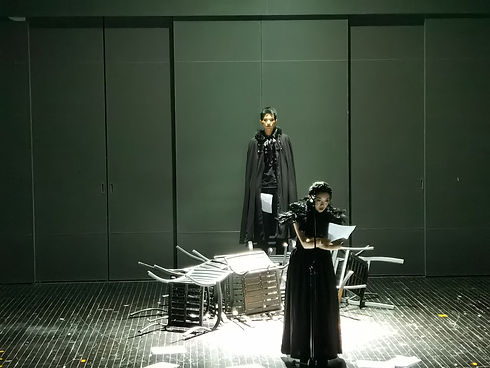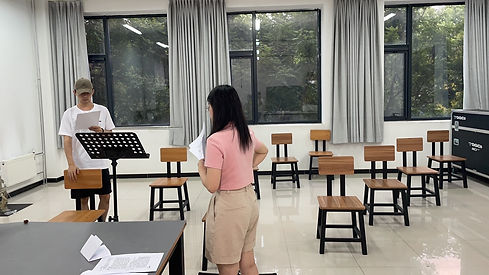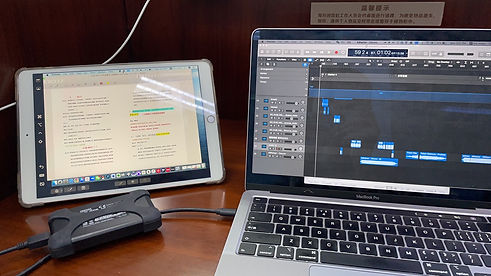



In sound theatre, sound takes a leading role. The sound style of "Macbeth" is electronic music with the incorporation of Chinese elements. I used the tones of the Chinese instrument pipa to symbolize Macbeth's desires, which appear when he discusses themes of desire and kingship in the play. Additionally, I utilized the vocal styles of Hua Dan, Xiao Sheng, and Mo Jue from Peking opera to interpret the roles of the three witches in "Macbeth," employing Peking opera recitation to present the prophecy scenes involving the witches and Macbeth.
This overture is intended to set the tone for the entire play, incorporating a fusion of various styles, including the pipa, Peking opera, and techno-electronic music.


I selected the singing styles of Hua Dan, Xiao Sheng, and Mo Jue from Peking opera to interpret the roles of the three witches in "Macbeth." During the creative process, I studied the arrangement of various roles in Chinese opera and consulted with professors and classmates specializing in Peking opera at my school. We discussed and rehearsed together to find suitable tones for performing Peking opera recitations. Eventually, I discovered that Peking opera recitations and my production style could blend harmoniously. I edited percussion from traditional Peking opera accompaniment and created a foundational drone. Additionally, in this segment, I continue to use the pipa to symbolize desire.
The English translation is as follows:
Witch A: When will the sisters meet again amid thunder and pouring rain?
Witch B: Let's wait until the beacon fires are quiet on all borders and the defeated army proudly plays a victorious song on their return.
Witch C: The sunset glow still lingers on the half-mountain.
Witch A: Where shall we meet?
Witch B: In the wilderness.
Witch C: Let's go together to see Macbeth.
Witch A: I've arrived, the fox spirit.
Witch B: The toad called for me.
Witch C: Here I am.
All Witches (Chorus): Beauty is ugliness, ugliness is beauty, soaring in poisonous fog and demonic clouds.



